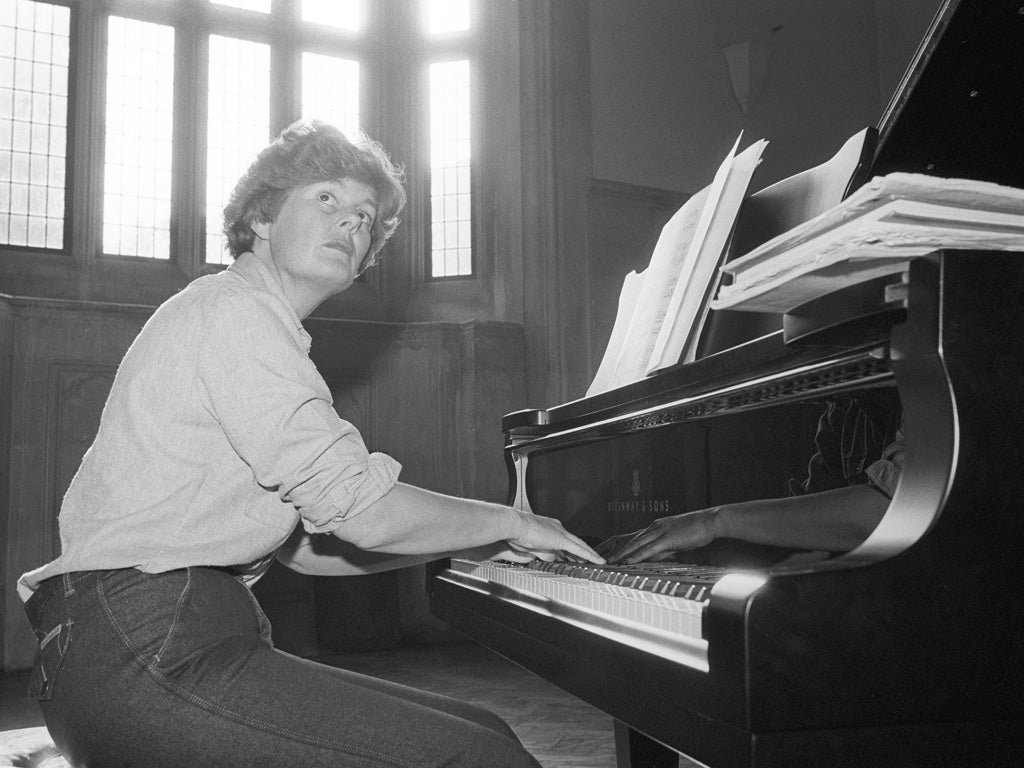Lady Runcie: Independent-minded wife of Robert Runcie

Your support helps us to tell the story
From reproductive rights to climate change to Big Tech, The Independent is on the ground when the story is developing. Whether it's investigating the financials of Elon Musk's pro-Trump PAC or producing our latest documentary, 'The A Word', which shines a light on the American women fighting for reproductive rights, we know how important it is to parse out the facts from the messaging.
At such a critical moment in US history, we need reporters on the ground. Your donation allows us to keep sending journalists to speak to both sides of the story.
The Independent is trusted by Americans across the entire political spectrum. And unlike many other quality news outlets, we choose not to lock Americans out of our reporting and analysis with paywalls. We believe quality journalism should be available to everyone, paid for by those who can afford it.
Your support makes all the difference.Lady Rosalind Runcie, widow of the late Archbishop of Canterbury Lord Runcie, was a warm-hearted, irrepressible woman who was determined not to be pigeon-holed as a traditional "clergy wife".
She believed a wife could have her own career and be her own woman while supporting her husband's ministry. She was determined to keep the Archbishop's feet on the ground, once famously saying that "too much religion makes me go off pop".
First and foremost, she was a concert pianist, for which she won much acclaim. Later she became a fundraiser for the Church, raising over half a million pounds through concerts and recitals, as well as championing the fight to save the Early Diagnostic Unit for breast cancer of The Royal Marsden. With the hospital's threatened closure in the 1980s, Runcie joined June Kenton, owner of Rigby & Peller, and organised a petition for the unit's continued existence, gathering thousands of signatures. The petition was delivered to Norman Fowler, Secretary of State for Work and Pensions, who withdrew the notice of closure.
Allergic to pretension and pomposity, Rosalind Runcie, who, by self-admission, was "not terribly religious," felt uncomfortable about attending formal occasions with her husband. She recalled feeling like "a decoration" and resenting "having to go there, smiling." She seldom accompanied him on the weekends he spent at the Old Palace in Canterbury, because her interests lay in London. Overseas visits only occurred when she had been invited to perform as a concert pianist.
Initially seen as a breath of fresh air by the press, she later found herself taking them on after an invasion-of-privacy case and, over a number of years, tabloid coverage questioning their "bizarre" marriage.
Robert Runcie had first ruffled feathers when he preached penitence and reconciliation at the service of thanksgiving following the Falklands conflict in 1982, instead of the triumphalism the press and Thatcher's government craved. Then in 1985, the publication of the report of the Archbishops' Commission on Urban Priority Areas, Faith in the City, left the government in no doubt that the leadership of the Church of England could not endorse Conservative policies.
The campaign against him took a nasty turn when it began to focus on his marriage. One tabloid carried privately taken pictures of her, including one in evening dress draped across a piano, and another in a swimsuit; and the implications were that the marriage was breaking up, and that Runcie should resign. This persecution continued for a number of years, until the couple were issued a statement that they had been "a happily married couple for nearly 30 years". In 1987, Rosalind began legal proceedings against the Daily Star, which eventually made a substantial out-of-court settlement.
Born in Cambridge in 1932, Angela Rosalind "Lindy" Turner was one of six children. She was educated at the Perse School for Girls, Cambridge, then the Guildhall School of Music, where she trained as a pianist. She met Robert Runcie, 10 years her senior, through her sister at Oxford, when they returned home one weekend. She recalled thinking, "What a gorgeous man!" but was informed by her sister: "He's going to be a celibate priest." Unaware of its meaning, she checked in a dictionary and lamented, "What a waste".
The two met again when Runcie became Dean of Trinity Hall, Cambridge, in 1956, and she began working part-time as his secretary. Within a few months they announced their engagement, leading to a split within the family with her father, an atheist, staunchly opposed. Nevertheless, the wedding went ahead. She later recalled, "I was marrying the character of the man, not his profession".
Four years later he was appointed principal of Cuddesdon Theological College, near Oxford and the couple moved. Rosalind continued giving recitals while bringing up their children. She became known as a "strict, encouraging, and inspirational" piano teacher at St Albans School and St Albans High School for Girls. She was also honorary president of the Anglo-Armenian Association. She died after a short illness and is survived by her two children, James, a novelist, and Rebecca.
Angela Rosalind Turner, pianist, music teacher and fund-raiser; born Cambridge 23 January 1932; married 1957 Robert Runcie (one son, one daughter); died Watford 12 January 2012.
Join our commenting forum
Join thought-provoking conversations, follow other Independent readers and see their replies
0Comments